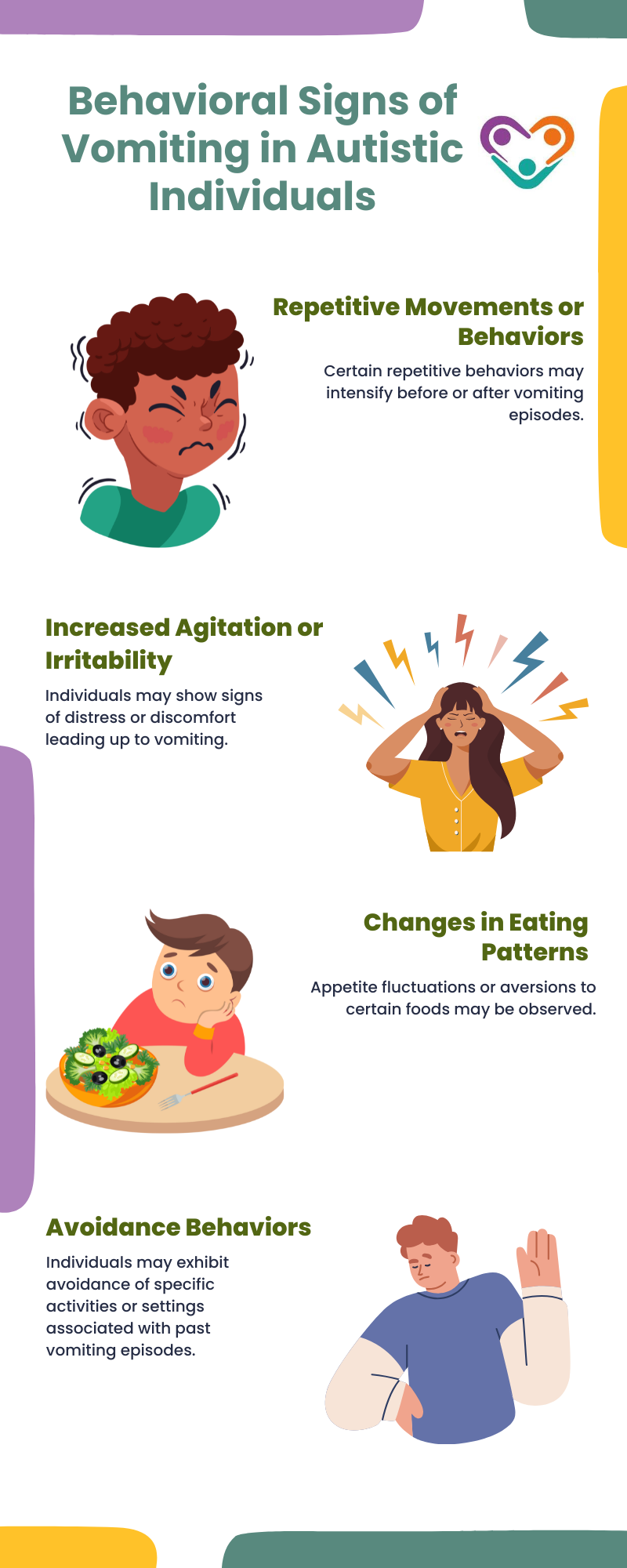Benefits of early intervention from an Aba Therapist Near Me makes a difference
Benefits of early intervention from an Aba Therapist Near Me makes a difference
Blog Article
Secret Symptoms And Signs to Recognize in Individuals With Behavioral Autism
When you come across somebody with behavioral autism, acknowledging essential signs and symptoms is important. Furthermore, sensory level of sensitivities can lead to overwhelming experiences.
Challenges in Social Communications
When you interact with a person on the autism spectrum, you may observe they struggle with social signs and communication. These challenges can make social communications feel frustrating for them.
When they do involve, they may chat concerning their passions in excellent detail without observing if you're interested. Understanding these challenges can aid you come close to communications with empathy and persistence, cultivating a more comfortable environment for both of you.
Problem With Verbal and Non-Verbal Communication

Non-verbal communication can be even more difficult. You could see a lack of eye call or limited usage of motions, which can make communications feel awkward. Facial expressions may not always line up with the conversation, bring about complication concerning their sensations. Identifying these signs is important, as it assists you better assistance and engage with individuals on the autism spectrum. By comprehending their communication difficulties, you can cultivate a lot more significant links and offer a much more supportive environment.
Repetitive Behaviors and Routines
Communication difficulties frequently go along with other signs of autism, such as repeated actions and a strong preference for regimens. You could see that people with autism typically take part in particular, repetitive activities, like hand-flapping, rocking, or repeating expressions. These behaviors can provide convenience and a feeling of control in a typically overwhelming globe.
When they follow a structured schedule,Regimens are similarly vital; numerous individuals grow. You may locate that changes to these regimens can bring about substantial distress. For instance, if they have a daily ritual of consuming morning meal at a details time or complying with a specific course to institution, any type of disturbance can cause anxiousness.
Acknowledging these patterns assists you understand their behavior and give assistance. By suiting their demand for routine and allowing recurring activities, you can produce an extra comfy atmosphere that eases their challenges.
Sensory Level Of Sensitivities

Typical Sensory Triggers
Sensory sensitivities can substantially impact every day life for individuals with autism, as specific stimulations commonly trigger overwhelming responses. Typical sensory triggers consist of loud sounds, bright lights, and solid smells. You may see that sudden sounds, like alarms or alarms, create stress and anxiety or distress. In a similar way, fluorescent illumination in shops can really feel severe and uneasy. Textures can likewise play a significant function; harsh textiles or certain food textures may be excruciating for you. Additionally, crowded places can overwhelm your senses, making it difficult to loosen up or concentrate. Understanding these triggers can help you handle your setting much better. By recognizing what affects you, you can take actions to decrease discomfort and improve your daily experiences.
Behavioral Responses Explained
Understanding your behavior responses to sensory level of sensitivities is necessary, as they often reveal exactly how you engage with the world. You might see that specific audios, lights, or appearances overwhelm you, resulting in anxiety or discomfort. When faced with these stimulations, you may withdraw, cover your ears, or also react aggressively. These responses aren't simply peculiarities; they're your way of dealing with overstimulation. You may also discover yourself looking for specific sensory experiences, like deep stress or peaceful environments, to aid ground yourself. Identifying these patterns assists you understand your demands much better and can guide just how you interact them to others. By acknowledging your sensory sensitivities, you can work towards developing an atmosphere that feels more comfortable and convenient for you.
Coping Strategies Introduction
Acknowledging your sensory level of sensitivities is just the initial step; now it's time to check out coping approaches that can help you handle those experiences successfully. Start by developing a sensory toolkit customized to your demands. This could include noise-canceling headphones, fidget toys, or soothing scents. Developing an organized regimen can also give predictability, lowering anxiousness around sensory overload. When you feel overwhelmed, take breaks in a quiet space to collect yourself. Exercising mindfulness strategies such as deep breathing can aid ground you in the moment. In addition, connect your demands with those around you; having supportive good friends and family members can make a significant distinction. Keep in mind, discovering what works finest for you may take some time, so be open and patient to attempting new techniques.
Limited Interests and Focus
While lots of people develop a large range of rate of interests, those with autism often demonstrate limited rate of interests and an intense emphasis on certain subjects. You might notice that a person with autism can spend hours diving right into link their preferred subject, whether it's a specific type of train, a certain movie, or a clinical concept. This extreme focus isn't just a hobby; it can come to be a central component of their identity and social communications.
You may find that discussions revolve around these passions, and they may struggle to take part in more comprehensive topics. For them, these concentrated passions give comfort and a feeling of mastery. While it is necessary to encourage expedition of new subjects, valuing their enthusiasms is similarly crucial. By comprehending and recognizing these restricted rate of interests, you can promote an encouraging atmosphere where they really feel valued and recognized, enabling more significant links and interactions.
Emotional Policy Problems
Individuals with autism typically encounter obstacles in emotional guideline, which can be affected by their extreme focus on particular rate of interests. You might observe that when an individual is deeply taken part in a recommended task, they can experience strong feelings, whether excitement or irritation. This intensity in some cases makes it hard for them to change equipments or handle their feelings when things don't go as prepared.

Variability in Developing Turning Points
When it pertains to developmental landmarks, you'll observe that individuals with autism commonly show a vast array of irregularity. Some might hit landmarks promptly, while others might lag behind or development at a various speed. For instance, you might see a kid succeed in language skills however deal with social communications. This inconsistency can be why not try this out confusing, as traditional standards do not always apply.
It's vital to recognize that each individual's journey is one-of-a-kind. Observing these patterns can aid you understand their toughness and requires better.
Regularly Asked Questions
Just How Is Autism Identified in Kid and Grownups?
To identify autism in adults and kids, specialists evaluate actions, interaction skills, and social communications. If an individual fulfills the requirements for autism range disorder., they frequently utilize standard tests, interviews, and monitorings to determine.
Are There Different Kinds of Autism Spectrum Disorders?
Yes, there are various kinds of autism spectrum conditions, including Asperger's syndrome and prevalent developmental disorder-not otherwise defined. Each type differs in intensity and characteristics, so recognizing these distinctions can aid you far better support individuals with autism.
What Therapies Work for Individuals With Autism?
When taking into consideration reliable therapies for people with autism, you'll find alternatives like Applied Behavior Evaluation, speech therapy, and job-related therapy. Each technique can help enhance interaction, social skills, and daily working tailored to individual requirements.
Can Individuals With Autism Lead Independent Lives?
Yes, individuals with autism can lead independent lives. With the appropriate assistance, skills training, and sources, you can aid them establish self-sufficiency, manage everyday tasks, and grow in different environments, promoting their self-reliance.
Just How Can Families Support Loved Ones With Autism?
You can support your loved ones with autism by creating an organized atmosphere, motivating their interests, exercising patience, fostering interaction, and advertising social skills. Commemorate their more information achievements, despite how tiny, and construct an encouraging community.
Although many individuals on the autism spectrum can use and recognize language, they often encounter considerable challenges with both spoken and non-verbal communication. Recognizing these signs is vital, as it assists you much better assistance and involve with people on the autism range. You may observe that people with autism usually engage in particular, repeated activities, like hand-flapping, rocking, or duplicating phrases.Sensory level of sensitivities can considerably influence everyday life for people with autism, as specific stimuli often activate frustrating reactions.When it comes to developmental milestones, you'll observe that people with autism typically show a wide array of variability.
Report this page